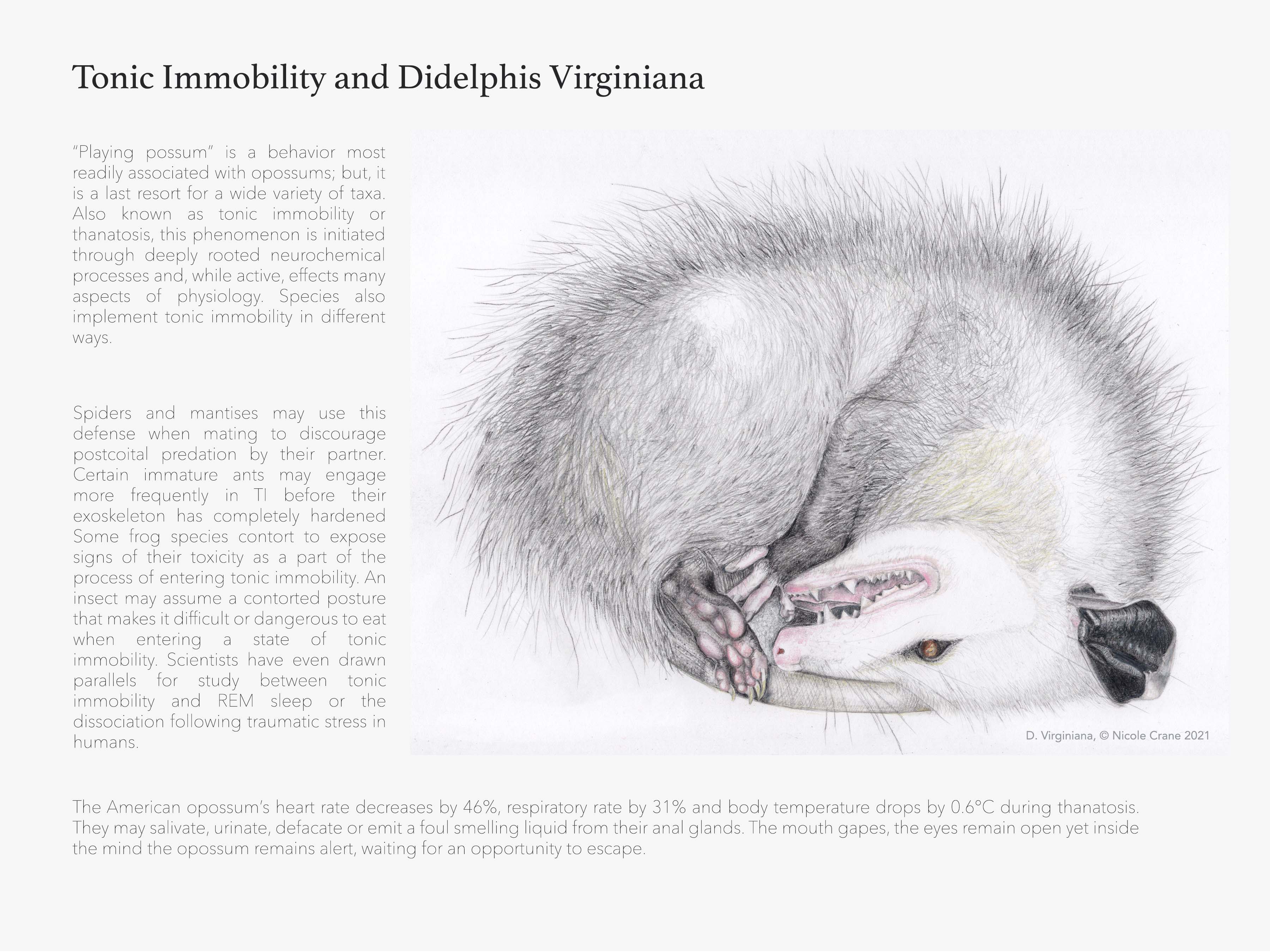Tonic Immobility and Didelphis Virginianaa

"Playing possum" is a behavior most readily associated with opossums; but, it is a last resort for a wide variety of taxa. Also known as tonic immobility or thanatosis, this phenomenon is initiated through deeply rooted neurochemical processes and, while active, effects many aspects of physiology. Species also implement tonic immobility in different ways.
Spiders and mantises may use this defense when mating to discourage postcoital predation by their partner. Certain immature ants may engage more frequently in TI before their exoskeleton has completely hardened Some frog species contort to expose signs of their toxicity as a part of the process of entering tonic immobility. An insect may assume a contorted posture that makes it difficult or dangerous to eat when entering a state of tonic immobility. Scientists have even drawn parallels for study between tonic immobility and REM sleep or the dissociation following traumatic stress in humans.
The American opossum's heart rate decreases by 46%, respiratory rate by 31% and body temperature drops by 0.6°C during thanatosis. They may salivate, urinate, defacate or emit a foul smelling liquid from their anal glands. The mouth gapes, the eyes remain open yet inside the mind the opossum remains alert, waiting for an opportunity to escape.
D. Virginiana, © Nicole Crane 2021